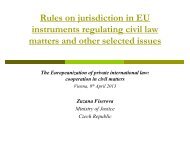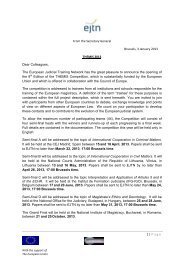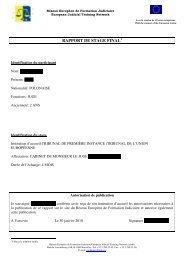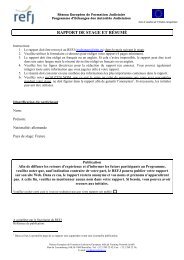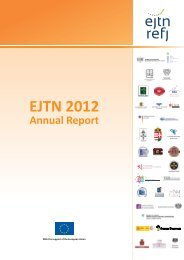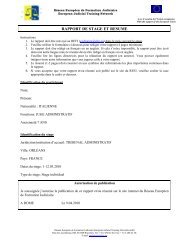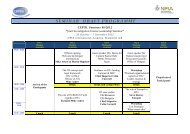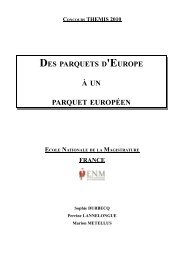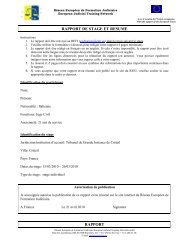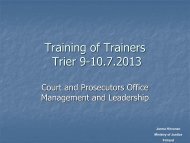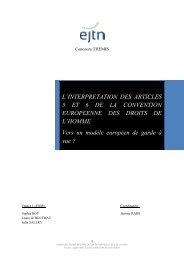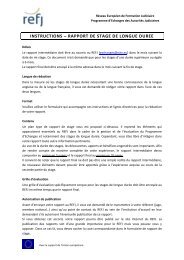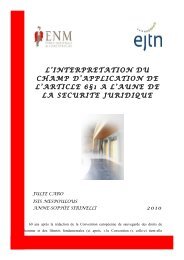European Criminal Justice - EJTN
European Criminal Justice - EJTN
European Criminal Justice - EJTN
- No tags were found...
Create successful ePaper yourself
Turn your PDF publications into a flip-book with our unique Google optimized e-Paper software.
<strong>EJTN</strong> training guideline in <strong>European</strong> <strong>Criminal</strong> <strong>Justice</strong> - Update 2011Training on this topic has been selected to form part of a common nationaltraining curriculum in <strong>European</strong> criminal justice by the participating trainers ofthe joint Workshop 'A joint frame for <strong>European</strong> criminal justice training in theEU'.D) FormatTraining should be offered on a national, trans-national and EU-wide level.V.2. Mutual legal assistance related to the trace, seizure andconfiscation of the assets of crime1. IntroductionAs financial gain remains the main objective of crime in general and of criminalorganisations, arrest and conviction alone without the confiscation of illicitproceeds, are not enough to combat organised crime. At EU level the necessityto set up appropriate mechanisms to improve the identification, freezing,seizure and confiscation of the assets of criminals has been addressed in severallegislative instruments. In 2001, Council Framework Decision 2001/500/JHA of 26June 2001 on money laundering, the identification, tracing, freezing, seizing andconfiscation of instrumentalities and the proceeds of crime was set up to restrictthe scope for reservations relating to certain Articles of the CoE Convention onlaundering and confiscation of the proceeds from crime. In 2006, the FrameworkDecision on the recognition of orders freezing property or evidence of 2003 wassupplemented by Framework Decision on the application of the principle ofmutual recognition to confiscation orders. In 2007, under the Council Decisionconcerning cooperation between Asset Recovery Offices of the Member States inthe field of tracing and identification of proceeds from, or other propertyrelated to, crime, Member States were asked to set up or designate a nationalAsset Recovery Office, and their cooperation and exchange of informationregulated. Furthermore, a <strong>Criminal</strong> Assets Seizure Centre has been createdwithin Europol with a view to helping the member states during the criminalassets identification phase to locate financial interests outside nationalboundaries.Training content:Legal assistance on the trace and seizure of illegal profits1. Sources1.1. The CoE 1990 Convention1.2. The national law on international cooperation in criminalmatters1.3. The procedure in the <strong>European</strong> Union:1.3.1. The Council’s Framework Decision 2001/500/JHA1.3.2. The Council’s Framework Decision 2003/577/JHA1.3.3. The Council’s Framework Decision 2006/783/JHA1.3.4. The Council's Decision 2007/845/JHA2. Grounds for refusal3. The formalities of an international demand37



